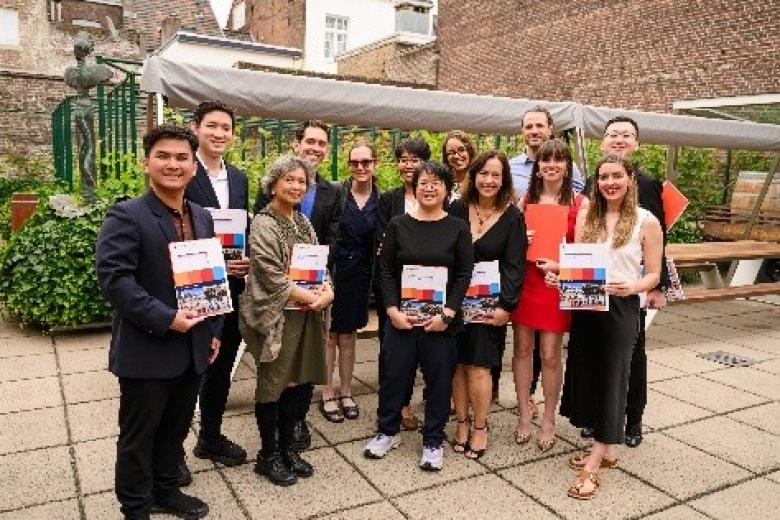Students for Climate – building a community
Students marching against climate change? Not really news, is it now? That’s the sort of thing students do anyways. Aware of the stereotype, Students for Climate chose to prick the student bubble for their latest march.
As expected, the turnout was lower – still, the organisers had achieved their aim. 1,500 people showed up for the climate march in Maastricht on 11 May. It was held on a Saturday, probably the least expedient day for reaching students. But there’s a rationale behind that: Crucially, the protesters were a lot less homogeneous than the first time around. The local population joined in the protest.
Students for Climate’s first march on 15 March 2019 had drawn more than 3000 attendants. “We were really happy with the turnout at the time, especially given the rain. It was a great experience – also learning how to organise everything.” Arthur Bribosia (University College Maastricht), one of the founders of the Maastricht chapter and the main organiser, was also happy enough with the media coverage too – although it was often pointed out that the march consisted almost exclusively of students.
Fair criticism
“We thought it was a fair criticism. So after that, we focused on involving the locals more.” To raise support for the next march, they went to talk to schools and local organisations - and their effort was rewarded with a warm welcome. “We were worried about the language barrier and their perceptions of students, but everyone was supportive, whether they joined or not.”
Judging from the social media responses to the articles that were written about the march, you could understand why they’d be apprehensive – “but the negativity exists almost exclusively online.” Arthur understands the scepticism “People think we just enjoy shouting in the streets and then go back to our cosy lives – and I get it: if you study here, you are to some extent in a comfortable position.”
Bringing people together
Openness and understanding are vital to starting a dialogue and changing opinions. “No one is in favour of climate change, people just have different priorities – but it makes sense if you consider their situation and concerns.” So the organisers thought about ways of bringing people together: on Plein 1992, they built a huge tree papier-mâché – students together with locals, from children to pensioners.
“The idea behind it? That it’s a lot of fun to work with papier-mâché…” laughs Arthur, “but also to symbolically create something environmental together.” Students for Climate know the locals are vital because, unlike students, they stay and are taken serious by policy-makers. “Local politics seems focused on industry to the exclusion of other things. We need the locals to make a difference.”

Not only shouting in the streets - but also shouting in the streets: S4C Maastricht's founders Marion Meyers (DKE), Delphine De Potter (UCM), Arthur Bribosia (UCM)
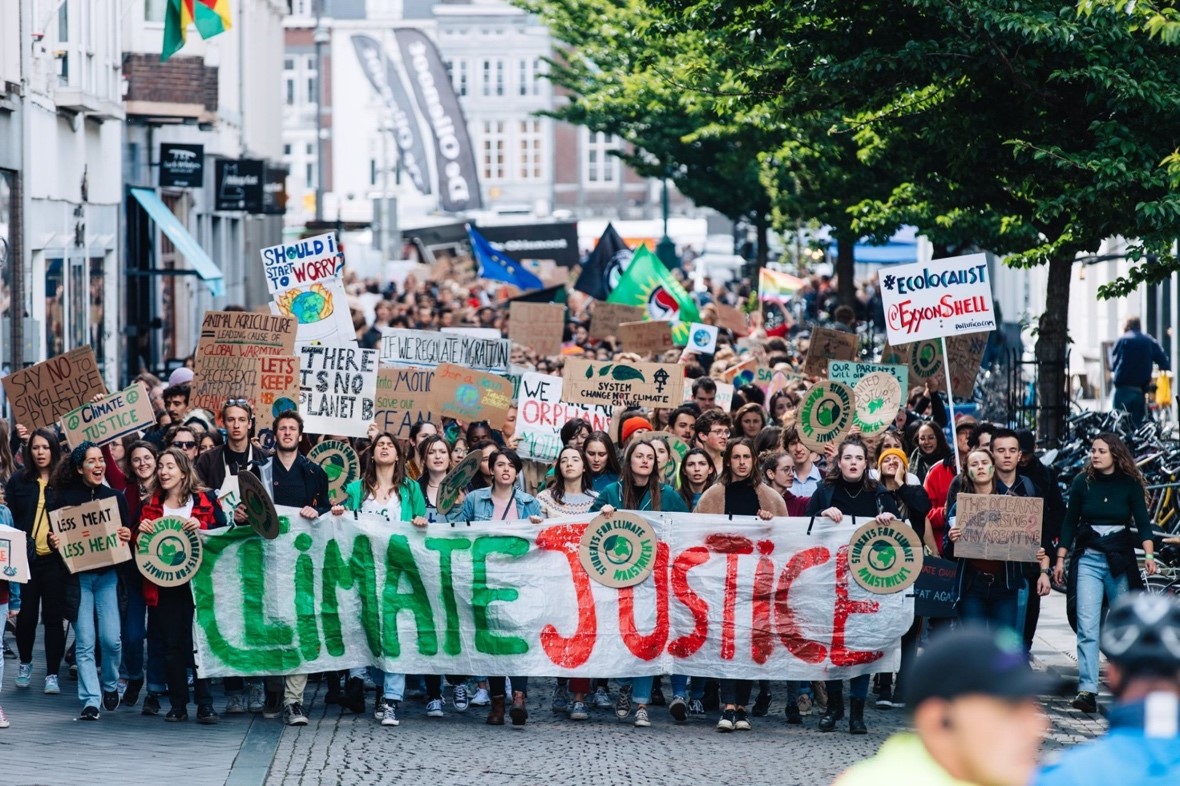
Change at the local level
Thibaut Schots (Economics and Strategy in Emerging Markets), the leader of their policy task force, is lobbying officials and politicians at the municipal level. “We are trying to implement policies for Maastricht to become a zero-waste city, such as banning plastic packages and promoting alternatives to plastic, and to boost the local economy with incentives and campaigns to consume local products.”
“We are talking to politicians to figure out what is feasible, and to find someone to champion our ideas. At the same time, we are in contact with researchers here at UM to evaluate our ideas and help us refine them.” Thibaut thinks students can act as a bridge between research and politics and is encouraged by the enthusiasm he has seen so far.
The most pressing issue of our time
“The point of all this is that we have to realise that we can exert a lot more influence than just by voting every four or five years,” says Arthur. They are clearly keen to carry the message beyond the student bubble. Under the umbrella of the Klimaat Aktie Netwerk, they are forging a growing network of local organisations that support one another, from Precious Plastic to Mondiaal Maastricht or CNME.
“We all want the same, but focus on different issues – so it’s both encouraging and very useful to organise.” On the back of the international momentum and their new network, they are planning another climate march in June. “We want to show that we’re serious, that we won’t go away. Students come and go but this remains the most pressing issue of our time.”
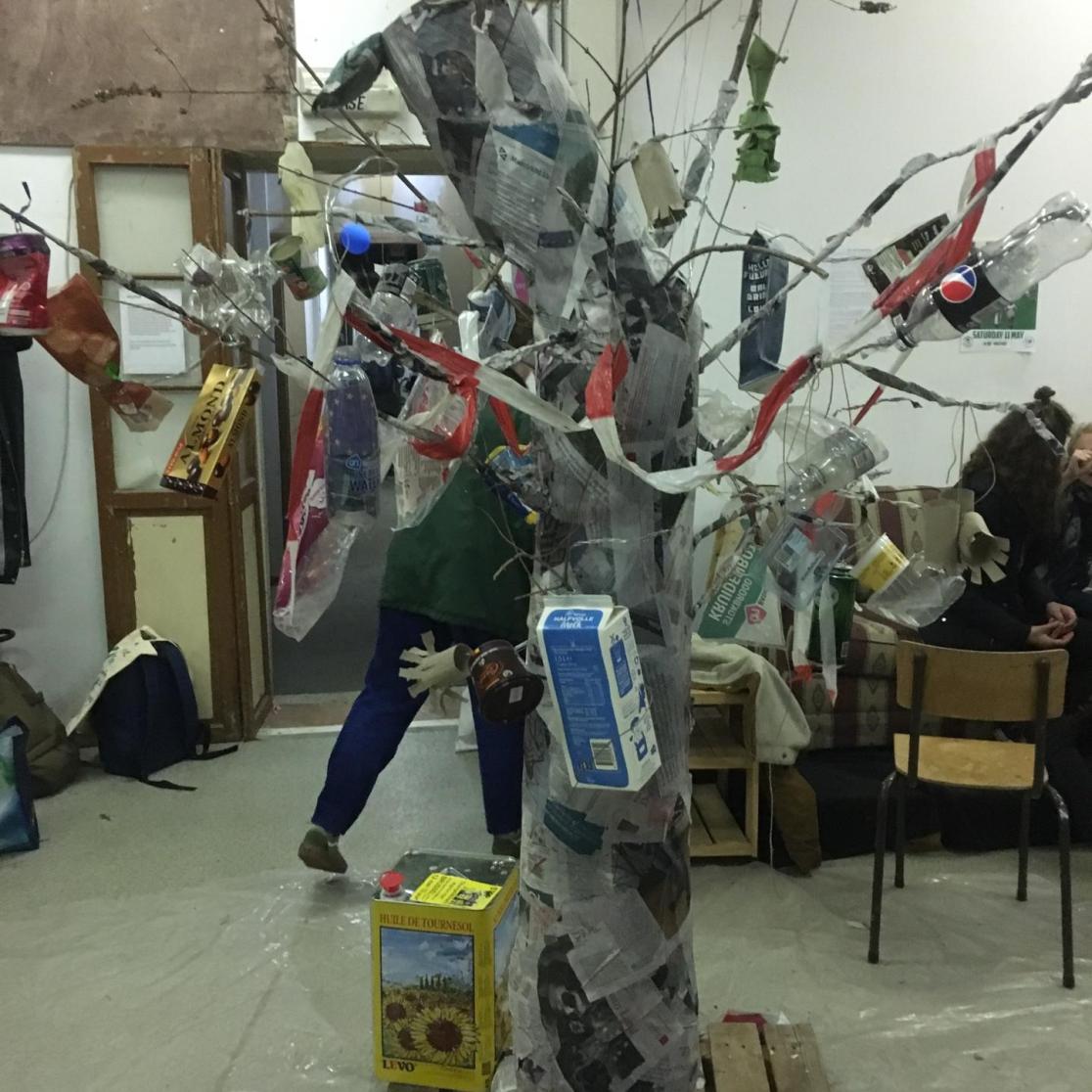
Raising awareness and a tree: S4C's project with local families at the Kunstfront.
Also read
-
Randwyck Library and the river of knowledge
Monique Notermans and Meike Kerkhofs-Welkenhuizen witnessed the vision behind a modern library come to life.
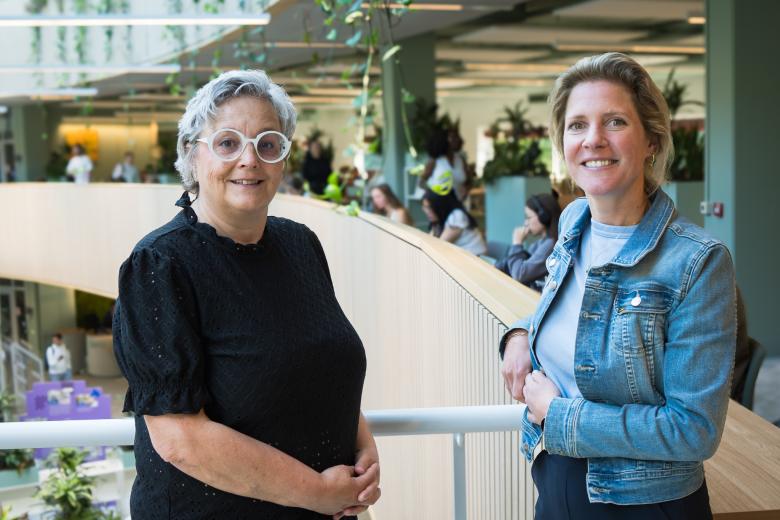
-
M-EPLI PhD Research Spotlight on Blessing Eze
M-EPLI PhD researcher, Blessing Eze, is examining the role of private documents in regulating global value chains.
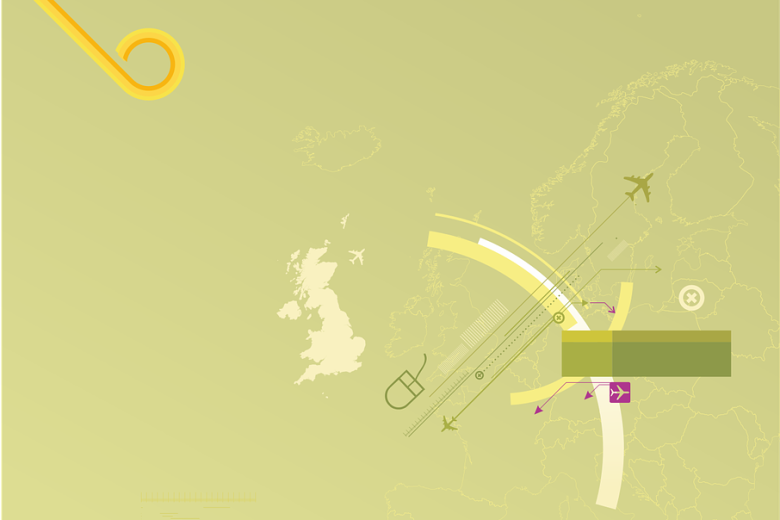
-
MHPE: Looking back and going forward
During the MHPE Campus Period last month we welcomed a new cohort of MHPE students and enjoyed seeing back those who are starting up their Master thesis projects. We are now preparing to hand over to a new MHPE Management Team that will take over on the 1st of September 2025.
